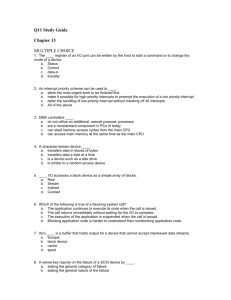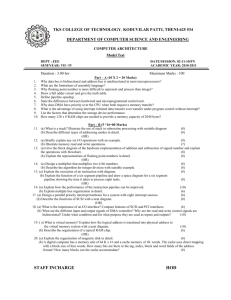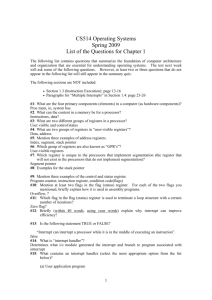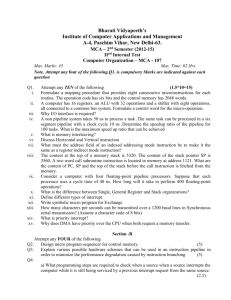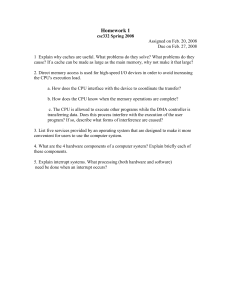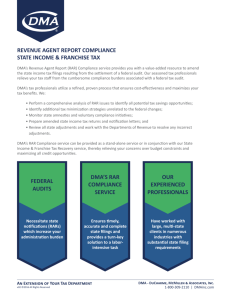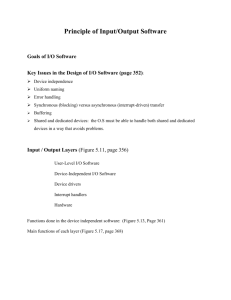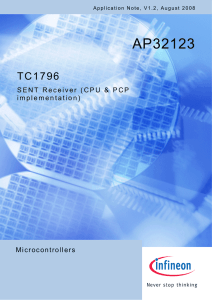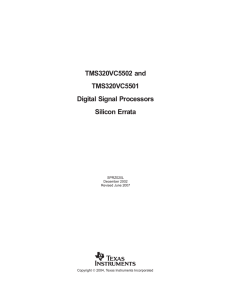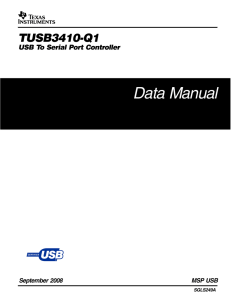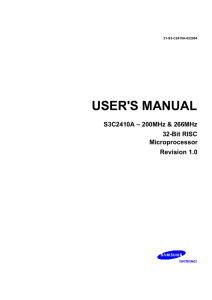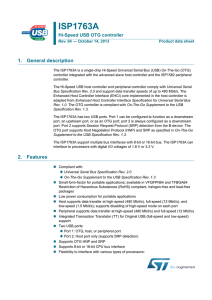Pertemuan 17 Input / Output Matakuliah : T0316/sistem Operasi
advertisement
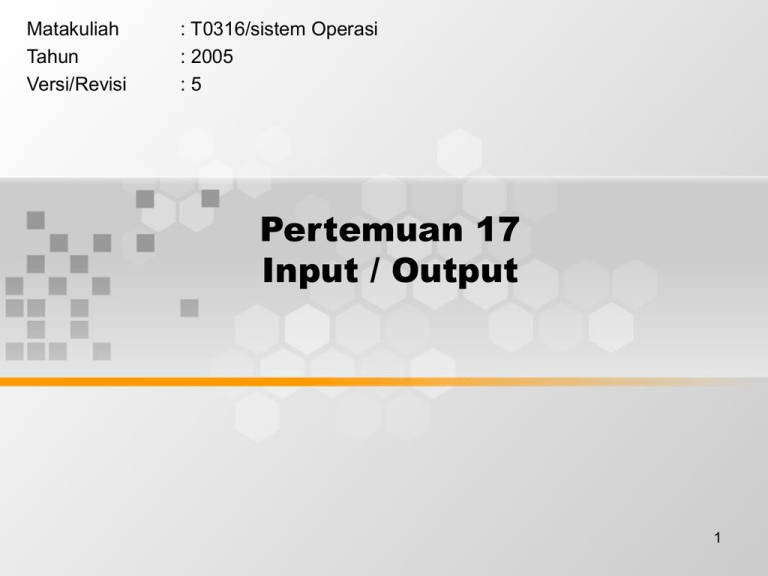
Matakuliah Tahun Versi/Revisi : T0316/sistem Operasi : 2005 :5 Pertemuan 17 Input / Output 1 Learning Outcomes Pada akhir pertemuan ini, diharapkan mahasiswa akan mampu : • menjelaskan prinsip input-output baik perangkat keras maupun perangkat lunak (C2) 2 Outline Materi • • • • • • Prinsip perangkat keras I/O Device controller Memory Map I/O Direct Access Memory (DMA) Interrupt Revisited Prinsip perangkat lunak I/O 3 Principles of I/O Hardware Dua jenis peralatan IO: 1. Block Devices Data dikirim atau diterima dalam bentuk blok (disk, pita magnetik) Informasi disimpan dalam blok berukuran tetap; setiap blok memiliki alamat sendiri 2. Character devices Data dikirim atau diterima dalam bentuk karakter (line printer, pita kertas, punched card, mouse, network interface) Tidak memiliki alamat ataupun operasi seek 4 Principles of I/O Hardware Some typical device, network, and data base rates 5 Device Controllers • I/O devices have components: – mechanical component – electronic component • The electronic component is the device controller – may be able to handle multiple devices • Controller's tasks – convert serial bit stream to block of bytes – perform error correction as necessary – make available to main memory 6 Memory-Mapped I/O (1) • Separate I/O and memory space – Need assembly code • Memory-mapped I/O – No special protection, but caching may be inconsistent; eg in PDP-11 • Hybrid – Eg. Pentium 7 Memory-Mapped I/O (2) (a) A single-bus architecture (b) A dual-bus memory architecture 8 Direct Memory Access (DMA) Operation of a DMA transfer 9 Interrupts Revisited How interrupts happens. Connections between devices and interrupt controller actually use interrupt lines on the bus rather than dedicated wires 10 Principles of I/O Software Goals of I/O Software (1) • Device independence – programs can access any I/O device – without specifying device in advance · (floppy, hard drive, or CD-ROM) Uniform naming name of a file or device a string or an integer not depending on which machine Error handling handle as close to the hardware as possible 11 Goals of I/O Software (2) • Synchronous vs. asynchronous transfers – blocked transfers vs. interrupt-driven Buffering data coming off a device cannot be stored in final destination Sharable vs. dedicated devices disks are sharable tape drives would not be 12 Programmed I/O (1) Steps in printing a string 13 Programmed I/O (2) Writing a string to the printer using programmed I/O 14 Interrupt-Driven I/O • Writing a string to the printer using interrupt-driven I/O – Code executed when print system call is made – Interrupt service procedure 15 I/O Using DMA • Printing a string using DMA – code executed when the print system call is made – interrupt service procedure 16
